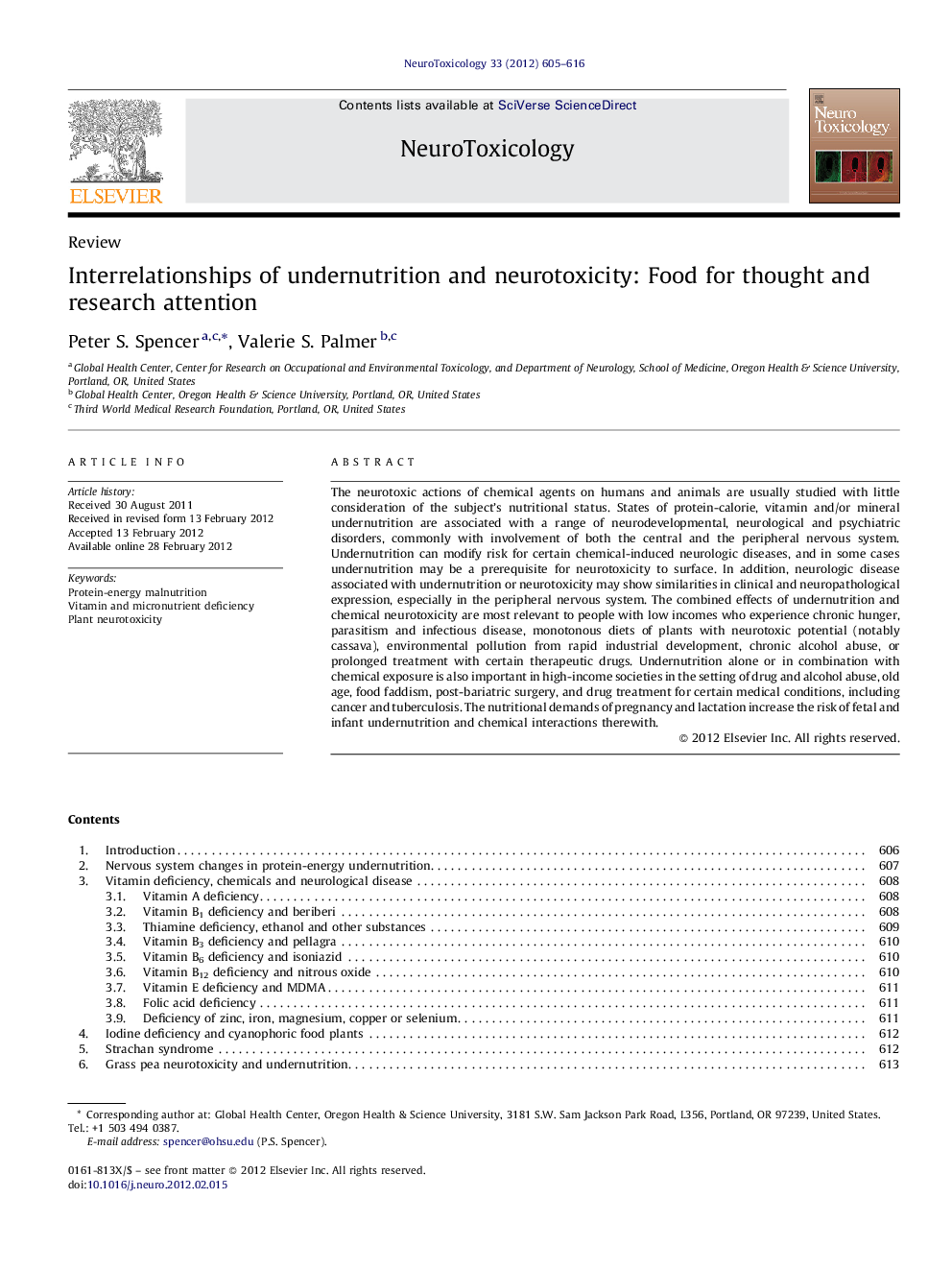| Article ID | Journal | Published Year | Pages | File Type |
|---|---|---|---|---|
| 5855408 | NeuroToxicology | 2012 | 12 Pages |
Abstract
The neurotoxic actions of chemical agents on humans and animals are usually studied with little consideration of the subject's nutritional status. States of protein-calorie, vitamin and/or mineral undernutrition are associated with a range of neurodevelopmental, neurological and psychiatric disorders, commonly with involvement of both the central and the peripheral nervous system. Undernutrition can modify risk for certain chemical-induced neurologic diseases, and in some cases undernutrition may be a prerequisite for neurotoxicity to surface. In addition, neurologic disease associated with undernutrition or neurotoxicity may show similarities in clinical and neuropathological expression, especially in the peripheral nervous system. The combined effects of undernutrition and chemical neurotoxicity are most relevant to people with low incomes who experience chronic hunger, parasitism and infectious disease, monotonous diets of plants with neurotoxic potential (notably cassava), environmental pollution from rapid industrial development, chronic alcohol abuse, or prolonged treatment with certain therapeutic drugs. Undernutrition alone or in combination with chemical exposure is also important in high-income societies in the setting of drug and alcohol abuse, old age, food faddism, post-bariatric surgery, and drug treatment for certain medical conditions, including cancer and tuberculosis. The nutritional demands of pregnancy and lactation increase the risk of fetal and infant undernutrition and chemical interactions therewith.
Keywords
Related Topics
Life Sciences
Environmental Science
Health, Toxicology and Mutagenesis
Authors
Peter S. Spencer, Valerie S. Palmer,
